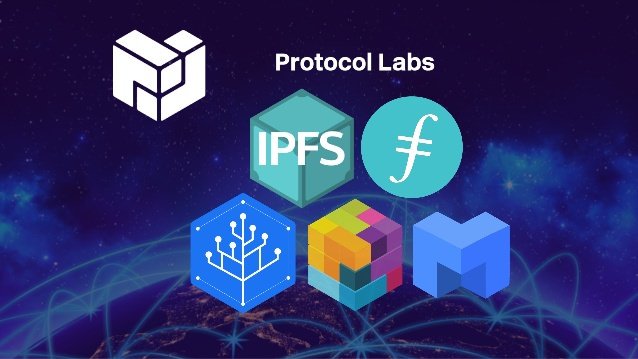Is governments' control over forever? ... The IPFS protocol makes it impossible to block the Internet in a particular country


With the closure of any referendum site and the lack of possibility of sending regular mail, the question arises: How will the Government of Catalonia be able to inform people of the locations of the polling stations assigned to them?

Centralized Internet
Before we talk about the solution that the Catalans used, we have to make it more clear.
The centrality of the Internet is a major problem now. Because of the nature of the web design and the centrality of the data on it, sites can disappear and die, and links can break down and become useless.
Because we rely on hosting services or servers, there is no solution to make sure that the content will not die with the death of the host.
We are talking about the idea of a "permanent Internet", not a permanent Internet connection, but we always mean content for what is online and published without the ability to remove or block it.

Catalonian solution and its advantages
The Catalan solution to the problem of communication with people for the referendum, ensures the use of IPFS technology and some coding processes and some ingenuity. We will focus here on the first point. The Catalans used this site to direct people to their voting places. This site has been published across the https://ipfs.io/ domain, which has a number of features for this purpose.
This site uses an international TLD or Top Level Domain, one of the most powerful and high-performance servers of the highest quality, making it difficult for the Spanish government to redirect this server through its own servers, and thus have no control over it.
The owner of this server is not related to the issue of the independence of Catalonia in any way. This makes it difficult to justify the legal proceedings against him, when the UK authorities have to implement these procedures because the .io extension operates from the territory of the United Kingdom.
This site is of https quality and not http. This makes it difficult to tamper with its content using intermediate attacks through government Internet service providers. The government may authorize Internet service providers to block all traffic to and from IPFS addresses, but they can not force Internet service providers to view another Web site instead of the original site without raising warnings.
Even if Spain severs all connections to and from ipfs.io sites, it is still possible to access the content (and reproduce it), because ipfs.io is just a proxy or proxy for the IPFS system. So anyone can download IPFS client and get instant access to all the contents stored there.
IPFS is a peer-to-peer or peer-to-peer protocol for sharing files and data between two personal computers on the Internet, a protocol widely used in file sharing programs. Peer-to-peer networks rely on users' computers and speed. Each person in the peer-to-peer network contributes files first and, secondly, as peer-to-peer networks connect and share files, if you upload a file from a network.
This makes it almost impossible for any player to block access to this content because it is automatically copied over the network, using encrypted connections from Nedland, which are very difficult to identify and block at the ISP level.
What is IPFS?
Is an abbreviation for InterPlanetary File System, which translates into an interplanetary file system, in reference to file sharing between different devices. Is a protocol designed to create a permanent and decentralized way to store and share files. A peer-to-peer file-sharing protocol for a decentralized storage that can be accessed through a particular program.
This system is an open source project developed since 2014 by protocol labs with the help of the open source community. It was initially designed by Juan Bennett.
In 2014, IPFS benefited from the Bitcoin blockchain protocol and the Internet infrastructure to store unchangeable data, remove duplicate files over the network, and obtain address information to access the Storage Contract to search for files in the network.
Known as the hypermedia distribution protocol, and allows the creation of fully distributed applications. It aims to make the web faster, safer, and more open.
IPFS is a distributed file system that seeks to connect all computers with the same file system. In some respects, this is similar to the original objectives of the Web, but IPFS is actually more similar to the idea of a single "BitTorrent" swarm of objects.

This system has become a new major subsystem of the Internet. If it is built in an integrated way, it can complement or replace the HTTP protocol. It can supplement or replace more. This seems crazy indeed.
This file system can be accessed in a variety of ways, including via FUSE or through HTTP. A local file can be added to the IPFS file system, making it available to the world. Files are recognized by fragmentation, so the system is cached. The files are distributed using a BitTorrent protocol.
How does this system work?
All you need to do is select a specific folder on your computer to share its contents in a decentralized IPFS network. Then you will place your site in that folder which will be in the normal HTML files, and in the future there will be a way to put interactive sites.
Your site will have a static address to visit. This address will remain the same and will not change, even if you are no longer a member of the network, as long as others have a copy of the site, the site will remain intact.
In other words, the site will be cloned everywhere on the network and will still exist even if the owner has disappeared or stopped its server. This is similar to a bank transfer copy on all banks involved in the transfer. There is therefore no need to process your signature in order to complete the procedure.
This means that in the long term we can dispense with the government in the idea of documentation, documentation of contracts, transactions, certificates and others.

موضوع اليوم جيد جدا
Important subject
Nice and good work
Nice topic
i like it
Congratulations @abdelkrim2015! You have completed the following achievement on Steemit and have been rewarded with new badge(s) :
Click on the badge to view your Board of Honor.
If you no longer want to receive notifications, reply to this comment with the word
STOPtrès bon sujet a lire a tête reposé
Nice and good work abdelkrim
free good thank
موضوع جيد جدا احسنت اخي